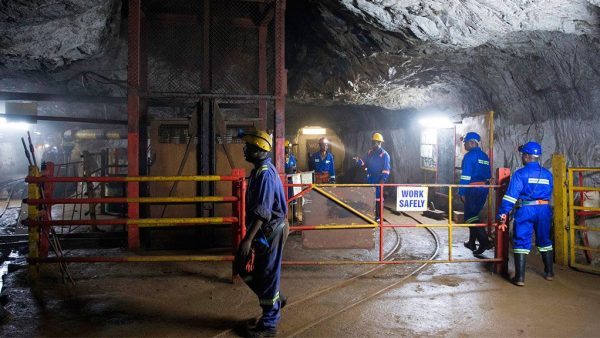Is it Employee Welfare or Paternalism?

The mining industry in Zimbabwe is and has always been labour intensive and over the years, the management of labour has evolved from the Personnel management approach to the strategic human resource management approach.
By The Professor
Historically, It is without a doubt that the mining industry adopted a traditional approach to managing people at the workplace and its main objective was to manage employees in line with the organisational goals and objectives. This approach was dubbed Personnel management and emphasised on rules and regulations, efficient management of employees, labour relations, discipline, good communication and employee welfare. However, this traditional approach of managing employees was routine and predictable and concealed systematic autocracy from the employer. The majority of the workforce was predominantly migrant labour from neighbouring countries such as Malawi, Zambia and Mozambique.
The main focus is on the employee welfare or Paternalism approach in managing employees at the workplace. The mining industry has been at the apex in the employee welfare fraternity for many years. In most mining companies in Zimbabwe, there was a fully funded, well-resourced welfare department that ensured all the physiological and psychological needs of employees were met. The company would ensure their employees enjoy free accommodation, water, electricity, education and food hampers. Depending on the grades, senior employees would be accommodated at the low-density area and junior or lower-level employees would be accommodated at the high-density area. The welfare system was designed to ensure that the employees were well catered for and every need is well looked after.
The system also allowed local organised leadership through “Elders” that will represent different ethnic groups in the community. The elders would coordinate the activities of other community members and they would work with the Community officers. If there is a funeral in the community the company would provide food, transport, firewood and other funeral benefits. It was norm and practice that if a father dies during service, the eldest son would “automatically” replace him at work depending on the level of skill. In some cases, if the breadwinner passes on during service, the family of the deceased would be relocated to another house and would not be chased away. The organisation ensured continuity and job security for the family. It was difficult for non-skilled employees from outside the community to get a job in most mines. The schools were fully resourced and the teachers were well-motivated, enjoying almost similar benefits to a mine employee. No school fees would be required and the top students were offered education bursaries up to tertiary level.
The footprints of the welfare system in mines was visible in the support of sporting activities, especially soccer and athletics. The companies would ensure that the sporting teams perform at the highest levels and become the flagship of the organisation. For example Rio-Tinto, Mhangura, Hwange, How mine etc, dominated the elite local premiership. The system had a consistent supply of talent from schools around the community, young boys and girls would be employed by the company soon after graduating from secondary school.
However, one may argue that most big mines could afford to fund the welfare system because they enjoyed huge production profits and to this day some big mines are still offering lucrative welfare packages. The question is that, is it ‘Employee Welfare or Paternalism? As defined by the Websters dictionary (2010), Paternalism is the principle or system of governing or controlling a country, group of employees, etc. in a manner suggesting a father’s relationship with his children. The employment relationship is a father and children relationship, where the children look up to the father for every need. The children won’t dare to cross the lines marked by the father, because the consequences are dire. The employee will enjoy all the benefits from the employer only if they are disciplined, loyal and obedient. Arguably, a number of mine employees are bitter when they are out of employment, either by retirement or dismissal, because they won’t be prepared to face the harsh reality of paying utility bills. Unlike their senior management counterparts, most low-level employees do not own personal houses or immovable properties and this has led to stress and despair when they retire and have nowhere to go and become destitute.
In conclusion, it is the writers view that the welfare system in the mining industry pauperised and blinkered most employees as compared to other sectors in the country. In most big mines, Paternalism is well packaged in the welfare system in order to preserve the prerogative of management. However, the honours is upon the employer to act as a loving and caring father and encouraging its employees to prepare for life after work. Pre-retirement and investment seminars should be organised for employees and retirees. Salary based loans should be advanced to employees in order to build their own houses. The employer may engage local authorities for land to secure residential stands for the employees and assist in building houses. Employees should remain as the flagship of the organisations even when they retire from work, thus it is important to preserve the integrity organisation through employees and retirees.
Disclaimer :
The views in this article are personal views and do not represent any organisation or consultant. The writer is a holder of a Bsc. Hounors Human Resource management degree (MSU) and Personnel Management Diploma (IPMZ). He has worked in the mining industry for 17 years and held various positions.


